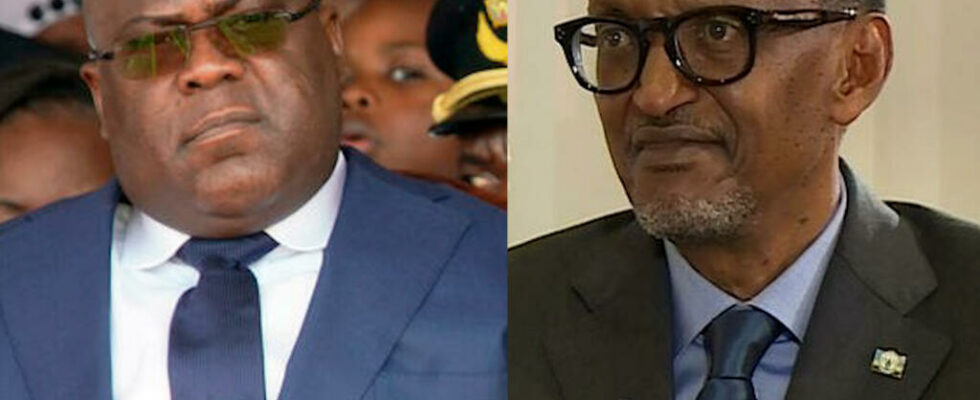The meeting was long awaited as part of the process which aims to put an end to the conflict between the Congolese armed forces and the M23 rebel movement, supported by Kigali, in eastern DRC. This Sunday, December 15, Paul Kagame and Félix Tshisekedi, the Rwandan and Congolese presidents, are due to meet for a tripartite summit in Luanda, under the aegis of the Angolan mediator, President João Lourenço.
4 mins
with our correspondents in Kinshasa and Kigali, Paulina Zidi and Lucie Mouillaud
It is a decisive meeting whose stated objective is the signing of a peace agreement. This Sunday, December 15, Felix Tshisekedithe Congolese president, must meet his Rwandan counterpart, Paul Kagamein Luanda, for a tripartite summit under the aegis of the mediator of the conflict which undermines the east of the DRC for three years, the Angolan president João Lourenço.
The event, which occurs after the negotiating a ceasefire in August then the establishment, last month, of a security crisis monitoring mechanism in the region and the adoption of a operational document to get out of it, is considered, in Kinshasa, as “ the culmination of a discussion process started in July 2022 », according to the terms used by the government spokesperson, Patrick Muyaya. Clearly on the Congolese side: we do not intend to be satisfied with a simple handshake in Angola where the issue of this Sunday’s summit is first and foremost the signing of an agreement with a view to bringing peace to Kivu.
Each camp continues to demand commitments
The fact remains that from this perspective, all the obstacles between the two parties have not been removed, far from it. Each camp initially continues to demand commitments from the other: withdrawal of Rwandan soldiers and return of displaced populations to the DRC side in particular, opening of a direct dialogue between the M23 and Kinshasa – which has always refused to do so until now – and neutralization of the FDLR composed, originally, of ex-Hutu genocidaires, on the side of Rwanda.
Demands to which are also added comments from the Congolese president which once again strained relations with Kigali, only a few days ago, when Félix Tshisekedi denounced, on December 11, a strategy of “ repopulation » of the eastern territories of the DRC by Rwanda. After immediately denying such a project, the Rwandan Minister of Foreign Affairs did not fail to emphasize the irresponsible nature of such a declaration likely to fuel, according to him, “ xenophobia against Congolese Tutsis “.
The Congolese Minister of Foreign Affairs was clear: “SIf we sign, we call as witnesses the international community and all the actors who have advocated for a peaceful and diplomatic resolution of the conflict », declared Thérèse Wagner to our colleagues at Voice of America.
Experts expect at least an agreement
And what are the Congolese waiting for and how do they see the summit meeting this Sunday? “ We are all watching what is happening in Luanda, says, for example, Sam Mwezezo, the spokesperson for the Générations-Nations political movement, which is currently organizing a forum for young people from the Congolese diaspora in Nairobi, Kenya. And as I too am from the east [de la RDC]more precisely from Bukavu, I witnessed the atrocities of these wars which follow one another in the region […]. We hope for a peace agreement so that there is no more blood, no more raped women or orphaned children. Enough is enough, we’re fed up! »adds this one.
“ This is a major event: everything will depend on the frankness with which [Félix Tshisekedi et Paul Kagame] will talk to each otherreacts for his part the political analyst Amory Lumumba, who is also participating in the Nairobi forum. The advantage of conversations behind closed doors is that everyone is less in the position, talking to their electorate or their donors. What we hope during this conversation is that both of them will speak frankly to each other,” he continues. But experts expect at least an agreement. “ I’m skepticalconfides Jason Stearn, who heads the Congo study group attached to New York University. Without international pressure, the document [de Luanda] risks remaining quite vague », he anticipates.
Also readCrisis in eastern DRC: the expectations of the displaced people of Goma in the face of the Luanda peace process
